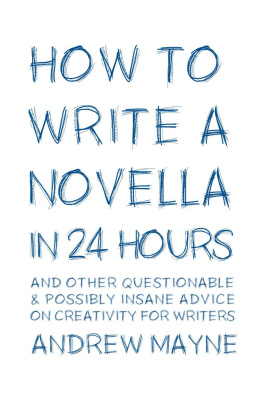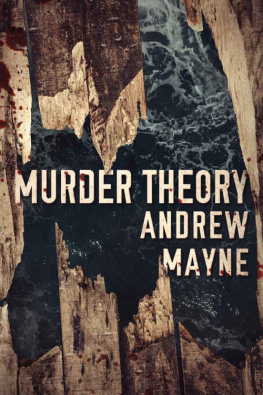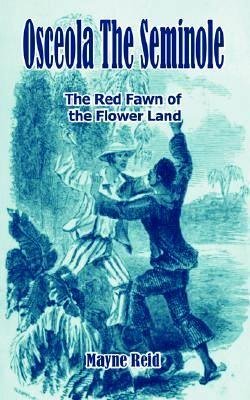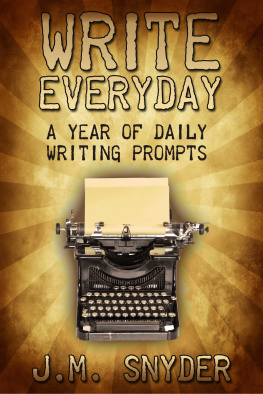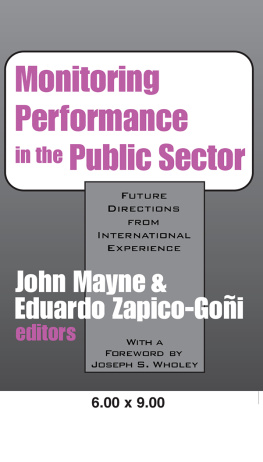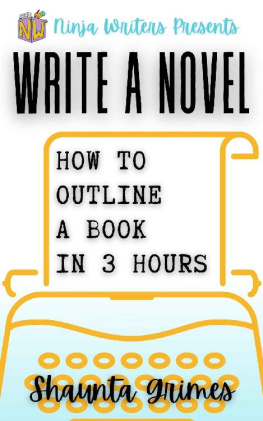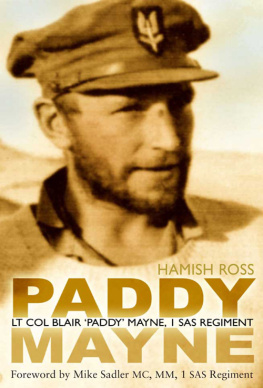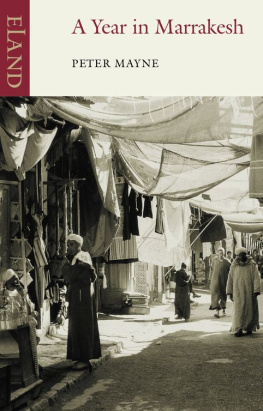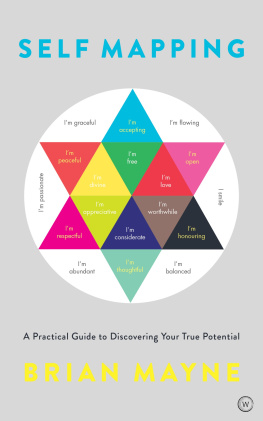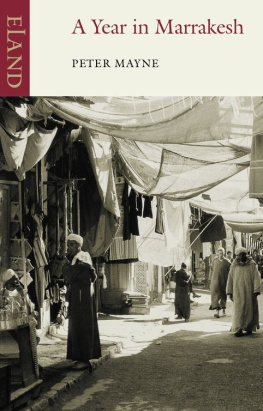A ll rights reserved .
No part of this book may be reproduced in any form or by any electronic or mechanical means, including information storage and retrieval systems, without written permission from the author, except for the use of brief quotations in a book review.
Introduction
T his slim volume is a collection of some of the things I've learned as a writer trying to understand our craft a little more.
The title, How to write a novella in 24 Hours , is a practical how to guide and not some gimmicky promise with a lot of caveats. In a little over 2,000 words, I explain the seven most important points I learned in my little experiment that's now become a regular habit of mine. I think marathon writing (a real writing marathon not NaNoWriMo 30-day writing) is great training for a writer. What you produce doesn't have to be released to the unsuspecting public. Finishing anything in this period, a novella, a novelette or a short story, shows that you're capable of finishing things. Finishing things is the key to much in life.
Before I wrote my first novel, Public Enemy Zero, writing a full-length novel seemed like an impossible ordeal. I cut my teeth with a 30,000-word novella, The Grendel's Shadow, and realized it was just a matter of passion, patience and idea. If you have all three, you're going to do fine.
My goal with this collection of essays is to help you get through those times when one or more of them is suffering.
How to start building your empire is about starting the growth of your audience and how to guarantee that when you have something to say, there will be someone to listen.
How long should a story be? Answers a very basic question similar to the one aspiring filmmakers ask when they wonder, where should they point the camera? (Check out David Mamet's book On Directing Film for the answer to that.)
How to write a bestselling novel on your iPhone , is my productivity secret. If you can master this, you'll thank me profusely. I was determined to be able to write anywhere, anytime and doing so has enabled me to write in casinos, airplanes and in the bathroom more than we need to talk about.
In The secret to making a book cover (that mostly doesn't suck) in 10 minutes or less , I show the very simple formula behind most of the iconic book covers of all time and how to use it to make your own cover in ten minutes (and then explain why you should make a bunch of them and refine the one you like the most.)
With Why you're staring at a blank screen , I try to break down writer's block and the reason beginning writers find themselves trying to figure out what to write instead of actually writing.
One Weird Trick to Boost Your Creativity , is a very simple thing you can do to build a war chest of countless ideas.
In Your worst idea may be your greatest , I explain how one of the greatest storytelling franchises of all time was almost a disaster and try to show you how great things come in iterations, not all at once.
You suck at taking criticism explains how a relentless pursuit of improvement is the key to success. Rather than "ignoring" negative people or criticism, great artists find a way to understand and learn from it.
In The Curse of a Creative Mind , I'll tell you how to figure out which idea of yours is the best one and explain why you can't get anything done.
How to Make Sure Your Self-Published Book Doesn't Look Self-Published , is ten pieces of advice on how to avoid common self-publishing mistakes when you print your book. (Spoiler: Don't say "By" before your name on the cover.
What are my favorite tools for writing books? Oddly enough, I explain in My 5 Favorite Writing Tools .
I discuss the trick question of titling your book in How I named this book .
Finally, 100 No (or low) Cost Ways to Promote Your Ebook , is a list of ideas meant to jumpstart your promotion of your books.
I hope you find something useful here!
Best,
Andrew Mayne
@AndrewMayne
How to write a novella in 24 Hours
What is this madness?
F irst off , let's discuss what I mean by a book. I'm not talking about writing the next Game of Thrones opus. Although it would be wonderful if GRR could pick up the pace just a little bit...
When I say "book" I mean a novella. What's a novella? According to the Science Fiction and Fantasy Writers of America, a novella is anything from 17,500 words to 40,000. Whereas a novel is anything over 40,000. What kind of books fall under the novella category? Lemony Snicket's A Series of Unfortunate Events, George Orwell's Animal Farm, all of R.L. Stine's Goosebumps books, lots of Stephen King stories, including Rita Hayworth and the Shawshank Redemption IMDB's best rated movie of all time, Shawshank Redemption, is based on. Richard Matheson's I Am Legend, and so on.
My point is there are lots of great books that fall under the category of "novella." And quite a few have made great movies. There would probably be a great deal more if the logistics of publishing were more friendly towards that medium. But guess what? In the age of the Kindle, those rules don't apply. There's been a renaissance of the novella thanks to ebooks.
What's also great about this size is that for a dedicated human being, you can write something like this in one or two sittings. As an experiment, fresh off finishing a novel, I was eager to write a shorter book and committed myself to writing a novella in 24 hours.
Why this madness?
I decided to try writing a novella in 24 hours because I was afraid I was becoming complacent in my writing. My first year of writing (and making money doing it) I wrote something like 8 or 10 books. Since then I got a little lazy. Granted, I did things like make a television show, but still, I watched myself take longer and longer to write and develop some bad habits.
After taking an egregiously long time to finish one book (3 months which is an eternity for me), I sat down and made note of all the things that went wrong. The book I wrote after that came together in a fun two weeks of writing that never felt forced.
Right after I finished, I made note of everything that worked and how I was in the "zone." This all took place at an In-N-Out Burger where I was celebrating the completion of the novel. While sitting there I had an idea for a cool story and put it aside for a moment. I was focused on my average word count and realized that it was about 4,000 a day on the novel. Some days I did 10,000, but mostly it was around 2,000 to 4,000 words. While eating my animal-style fries I remembered how during my first year of writing I once did 17,000 words in one day words that ended up in my book The Chronological Man: The Monster in the Mist, a series that I get just as many people pestering me for more sequels as anything else I've ever done (Including Jessica Blackwood books).
Could I write that many words in a day again or was that just a fleeting experience that happened out of boredom and desperation?
I suddenly realized that the story in the back of my head (a kind of horror adventure) would make a perfect novella one that I could wrap up in 17,500 words (or so.)
I went home, and instead of lounging around for a few days patting myself on the back for finishing the other book, I made a little one-page outline and went to work. I wrote from 5 pm to about 3 AM passing my 17,000 earlier record that evening when I counted what I'd done in the last 24 hours on the other book. I went to sleep and then got back up around 8:30 AM and jumped back behind the keyboard. I finished at 4:45 PM, less than 24 hours later, with a word count of 20,053. I'd written an entire novella an honest to goodness book in less than a day.

